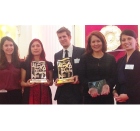Law firm champions air quality

Environmental law firm ClientEarth won the air-quality category, sponsored by the Building Engineering Services Association (BESA), in the National Sustainable City Awards backed by the City of London. The firm has recently issued a ‘final legal warning’ to the Department of Environment Food & Rural Affairs over its strategy for tacking air pollution. ClientEarth was also named ‘winner of winners’ in the awards.
James Thornton, chief executive of ClientEarth, ‘At its heart, all of our work is designed to create more sustainable societies. We’re setting global precedents on air-quality issues and questions of sustainable investment.’
The BESA has established a pan-industry IAQ (indoor air quality) initiative to highlight best practice and provide guidance that will turn buildings into ‘safe havens’ that protect the health and well-being of occupants in the face of rising urban air pollution.
David Frese, BESA’s head of sustainability and a member of the judging panel, explains, ‘Many UK cities are in clear breach of EU air-quality standards — and have been so far for several years. Our task as building engineering professionals is to provide technical IAQ solutions to back up the campaigning work of proactive firms like ClientEarth.’
Pictured are the ClientEarth team (left to right) Ellen Baker, Andrea Lee, Alan Andrews, Alice Garton and Natalie Smith with their air quality and ‘winner of winners’ awards.







